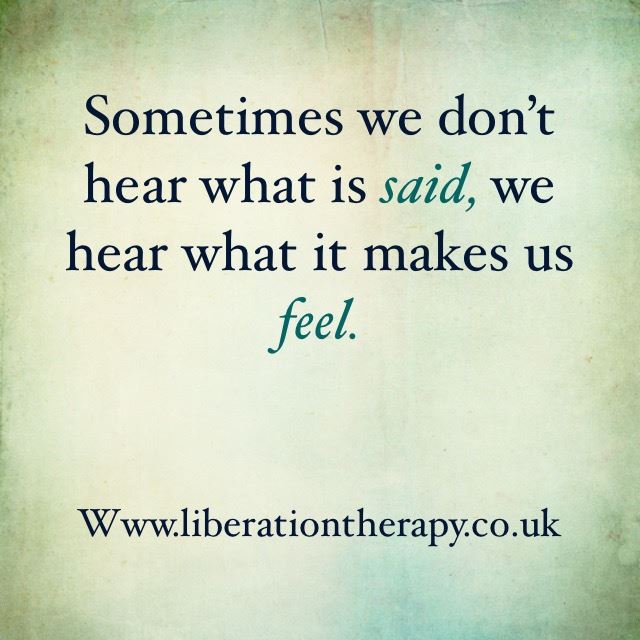Liberation Therapy Blog
Back to Liberation Therapy Blog
Relational Patterns
When we are small, we learn how the world works from the people around us. We learn what is acceptable behaviour and what isn’t from parents, siblings, friends and teachers. We learn how to respond to a given set of circumstances or how to demonstrate emotion from those people.
Essentially, we learn to relate to the world from the messages we receive as children.
So for example, in your family, how was sadness received? Were you hugged and soothed? Were you tickled till you laughed? Were you told ‘don’t cry’? Were you told to ‘man up’?
If your answers are any apart from the first, the message you may have internalised is ‘sadness is bad’. The same can be said for every emotion. Understanding how our emotions were responded to can help us understand why we might feel shame or guilt around our emotional responses.
These patterns of relating shape how we view ourselves and others, and indeed the world. They also inform how we behave in relationships with others too, both romantic and platonic, not to mention authoritative (ie police, teachers, doctors etc).
It’s important to realise that we don’t necessarily repeat the patterns. For example, if you grew up in a home where people were homophobic, you don’t automatically become homophobic. It may be that you reject the view completely and become an advocate for LGBTQ rights.
If you were taught anger was bad, you may really struggle to know how to process anger. You may have shame and guilt around anger and attempt to bottle it up.
We all learn different messages and ways to respond from the same relational responses, even in the same families. If you grew up around anger it may be traumatic for you when people start arguing near you, but your sibling isn’t bothered at all, and may even get involved in the argument.
Thinking back to how our emotions were received, and how our parents related to both each other (if they were together) and us will help us understand where we struggle with relationships.
Many many clients will tell me they don’t ‘do confrontation’. That they would rather ignore insults, slights, or something that has caused them emotion, because the fear of confrontation is so high they would rather hold on to it themselves, and absolve the other person of any responsibility.
Often this is because we are taught arguing is bad. If you argued with a sibling or friend how often were you allowed to resolve it yourselves? How often did a parent/carer or teacher step in and ‘break it up’?
Because this is such a common response to children arguing, they never learn how to resolve conflict, and as adults see conflict as a terminal act. That by confronting someone about something they found difficult in the behaviour means that the relationship will end, and they will some how be worse off without the person causing them emotional injury in their lives.
Does that seem right? That we hold onto injury because we don’t want to lose the injurer?!
So think back to your childhood, how were your emotional responses received? Were you allowed to argue to resolution? Were you allowed to demonstrate anger or sadness? How was your happiness and joy received?
When we understand that everything we know about emotion is taught, we can make peace with our own emotional responses, and know where they are coming from, meaning we take responsibility for them, and as a result establish a healthy boundary around how we are emotionally triggered by others, and how we respond with that knowledge.
Knowing why we respond in certain ways to certain circumstances or behaviour allows us freedom from the affect of others, and to prevent the repeat of maladaptive relational patterns that might put us in danger of abusive relationships.
I hope that helps, please feel free to ask any questions!
Helen

